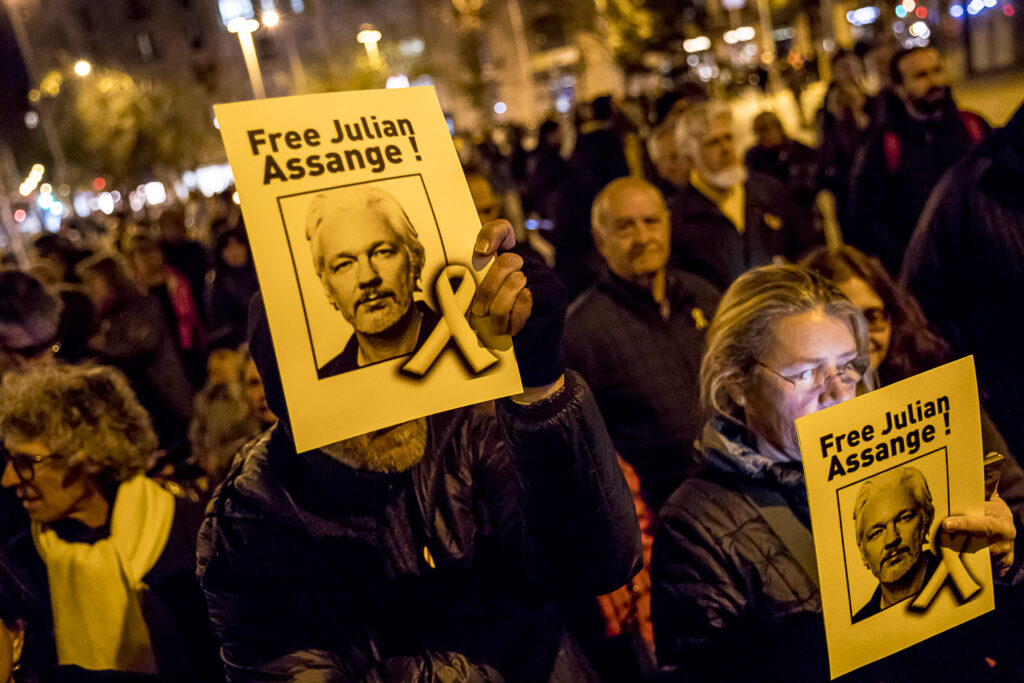19.02.2024 - 21:40
This Tuesday, two rallies will take place in Valencia and Barcelona in support of Julian Assange, coinciding with the appeal hearing in London against his extradition to the United States. In Valencia at noon in front of the United States consulate and in Barcelona at seven in front of the British consulate. These rallies are part of a global campaign, with events in hundreds of cities around the world, aimed at preventing the extradition of WikiLeaks journalist Julian Assange to the United States, where his life is definitively in danger.
In recent days, many people, including myself, have raised our voices in outrage over the assassination in a Russian prison of opposition leader Alexei Navalny. Julian Assange is not dead, which makes the cases not directly comparable. However, the cruelty and draconian conditions of their detention are more than comparable, as is the attempt by two major world powers – Russia in one case and the United States in the other – to silence the allegations that expose state crimes.
Assange changed our world with WikiLeaks, demonstrating the atrocities committed by the United States government in the 2007 military campaign in Iraq. The publication of the terrible images of “Collateral Murder,” an aerial attack on July 12 of that year in Baghdad where Iraqi and international civilians and journalists were killed, opened the eyes of millions of people to what was happening. The subsequent release of millions of documents of all kinds has opened a window into the opacity that states would like to preserve and has allowed us to better understand the world we live in.
Assange has paid a high price for this. And today he faces a particularly important decision because the British justice system must ratify or change the decision to grant extradition of the Australian journalist to the United States. To the same United States that reportedly considered extrajudicially killing him during the presidency of Donald Trump.
We live in an intolerable world in this sense. Assange, fulfilling the duty of journalism, made public war crimes, and years later none of the criminals has been prosecuted or even less convicted, but instead he, who made them public, has been almost five years in detention in inhumane conditions just because the United States wants to imprison him for life, applying an outdated espionage law from World War I.
Julian Assange – and also other heroes of our time like Edward Snowden or Chelsea Manning – what they have done, ultimately, is to improve our societies, to make us aware of things that needed to be known by the general public, exposed to the view and opinion of a citizenry that can only truly oversee what their governments were doing.
That is why defending Assange, defending them all, is a democratic imperative, but also a public test of morality. Indignation at persecutions and abuses such as those suffered by Navalny or Assange can never be partial, it cannot depend only on who is affected and the political consideration we have for them. Because if that were the case, we would be facing a huge display of cynicism.


